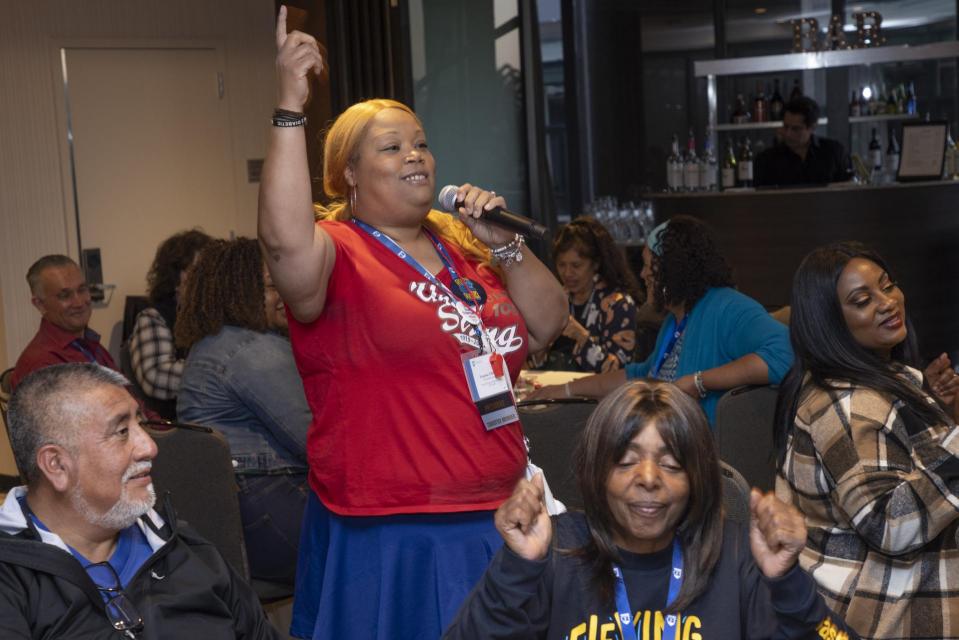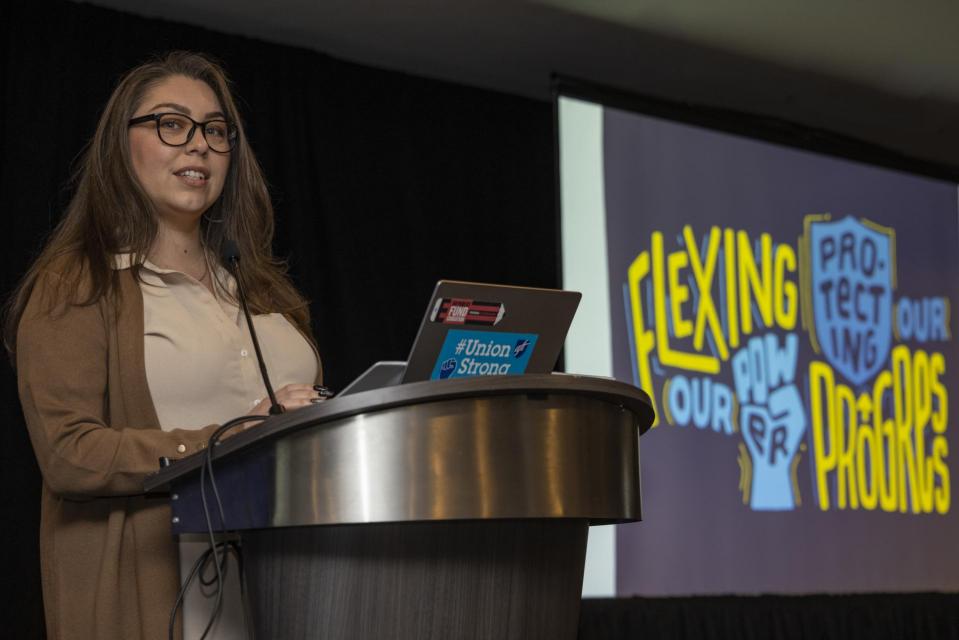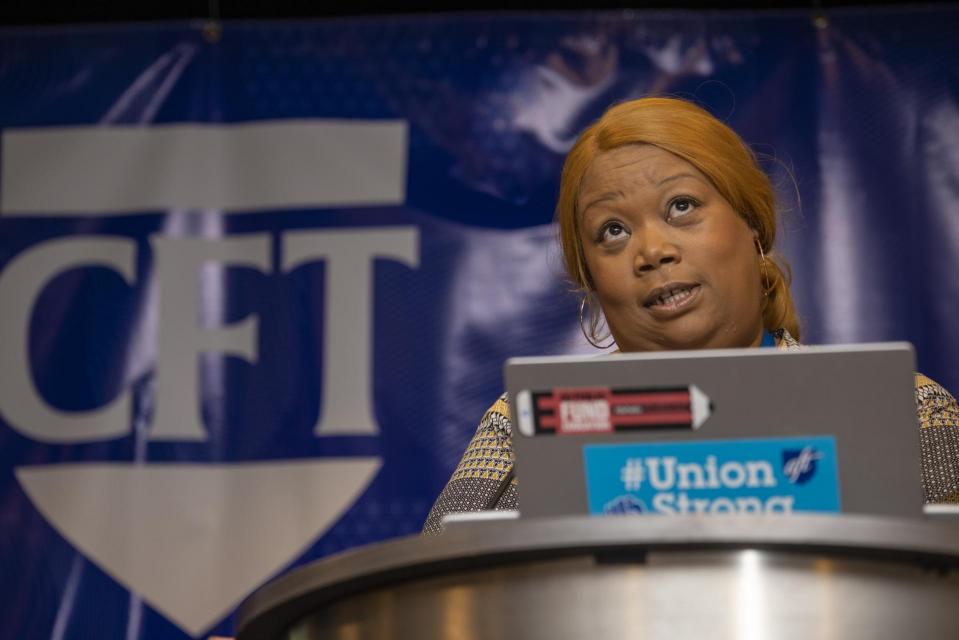People call San Francisco a city of love and a city of fog, according to Cassondra Curiel, the President of United Educators of San Francisco. But what it really is, she said, is a union town.
Curiel told attendees at the Council of Classified Employees Conference that the union of 6,500 classified and certificated members just won one of the biggest tentative agreements in the history of the organization.
The 70-member bargaining team included people from all backgrounds, grade levels, and jobs, including classified professionals, she said, and they approached bargaining looking for meaningful raises and improvements to working conditions.
“We’re all impacted by the staffing crisis. We’re all impacted by the chronic underfunding of education in California and the United States. And our students are therefore impacted,” Curiel said. “So, for us to take an approach that centered unity and centered the importance of equity, meant putting our money where our mouth was, and it meant walking the talk. And when push came to shove, or the rubber hit the road, or whatever analogy works for you, the 70-person bargaining team was confronted with an issue where they had to walk the talk. And they chose to do that without a blink, without a thought.”
That meant making the classified staff’s needs paramount, and one huge win for UESF is a minimum of $30 an hour for all paraeducators.
The main objective for UESF for the last few years has been solidarity, Curiel said, which she described as a verb.
“The only way to build solidarity is through action, through care, and through love. And that doesn’t always mean that we have to be in kumbaya with each other, right? Sometimes it takes love to have difficult conversations, to look each other in the eye and confront conflict with compassion, to know that the outcome of that is going to benefit us and make us stronger, rather than avoiding the issues,” she said.
“What we’ve managed to build together over the last nine months of bargaining and for this contract that we’ll have for the next two years, centers on the equity and the uplift of our classified professionals, for the betterment of our entire union, and most importantly, for students. Classified professionals are the folks that work the closest with the students and know the second that something is up in our school sites.”
Teana Tillery, the UESF’s Vice President of Paraprofessionals, also talked about the local’s recent win in negotiations. Tillery walked up to the stage blowing a whistle.
She explained the significance, saying that she blew the whistle when UESF’s campaign first started in December 2022 as a call to action.
“We were able to share our story as classified employees and our brothers and sisters who are certificated didn’t know that we don’t have a pension and that some of our brothers and sisters come in making $19. I’m being generous — it’s 18 and change,” Tillery told the attendees. “They couldn’t believe it, and as they were discussing our marketing survey in their breakout rooms, they made the decision to make this a priority for this campaign.”
Tillery said she planned to continue blowing her whistle. The bargaining team asked for a living wage at the beginning of bargaining. And they walked out at five o’clock in the morning, October 17 with the wage they’d asked for — $30 an hour for all paraeducators.
“What’s that they say?” Tillery asked. “Mess around and find out? They didn’t want the smoke. They did what they needed to do.”
Along with the wage increase, classified professionals got two floating holidays as well as longevity salary increases.
“Blow that whistle, girl,” someone in the audience yelled out.
“I blow this whistle with pride,” Tillery responded. “We flexed and we flexed hard.”



